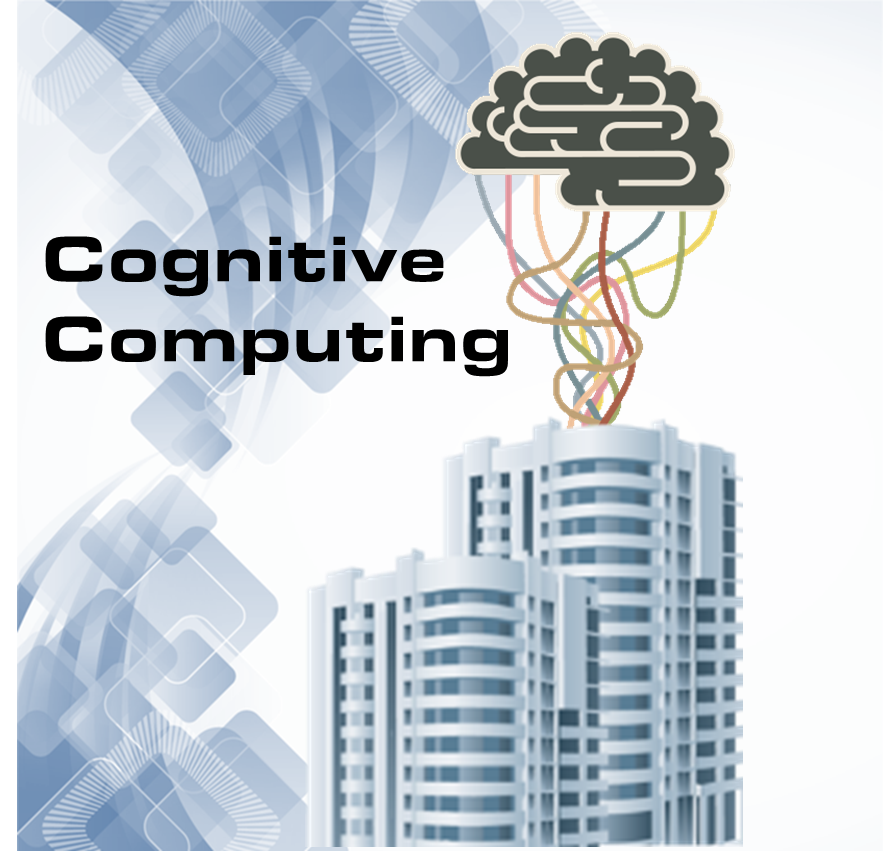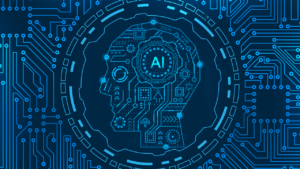Dan Briody, Senior Editor of THINK Leaders, defines cognitive computing as “systems that learn at scale, reason with purpose, and interact with humans naturally.”[1] To do this, most cognitive computing systems use a combination of machine learning, mathematics, and natural language processing. Tom Austin, a Vice President and fellow at Gartner, doesn’t believe this combination of capabilities makes a system cognitive. “‘Cognitive’ is marketing malarkey,” he wrote in an email. “It implies machines think. Nonsense. Bad assumptions lead to bad conclusions.”[2] The only bad assumption here is Austin’s belief that people aren’t capable of understanding the difference between a cognitive system and a sentient system (i.e., a system that demonstrates self-awareness). Cognition is defined as “the action or process of acquiring knowledge and understanding through thought, experience, and the senses.” Of course, that definition has to be modified slightly when applied to a “cognitive” machine. A cognitive system is a system that discovers insights and relationships through analysis, machine learning, and sensing of data. Is there hype associated with cognitive computing systems? Of course. There is hype surrounding any new technology and cognitive computing is no different. But in the case of cognitive computing, there is as much reality as hype.
Cognitive computing is a technology that had to wait to emerge until sufficient data was available for it to analyze. The emergence of “Big Data” laid the foundation upon which cognitive computing systems could be built. Sundeep Sanghavi (@SundeepSanghavi) reports companies have struggled trying to figure out how best to use the data they are collecting. “In the face of this incredible growth [of big data],” he writes, “Gartner predicts that 60 percent of big data projects will fail or be abandoned over the next year. CEOs and CXOs across the globe continue to scratch their heads, searching for ways to get the most value from their investments.”[3] His answer to that dilemma is cognitive computing. He explains:
“The solution to these woes begins with a mindset shift: You should no longer view data as a one-time investment. Instead, see it as something that can be operationalized into a scalable and repeatable long-term process. With most out-of-the-box big data solutions, companies use descriptive, predictive, or prescriptive insights to generate a one-time report on the data at hand. While this can help with troubleshooting, launching promotions, or making recommendations for individual products, these data solutions are not reusable or continuous, making this a short-term and shortsighted investment. Cognitive data products, on the other hand, utilize algorithms to automatically infuse data into your business workflows in a repeatable and scalable fashion. This approach frees up your data scientists from otherwise time-consuming processing requirements for building models, empowering them to propel the company’s big data strategy and focus on the future.”
Accenture analysts agree with his conclusion. They assert cognitive computing will provide the “ultimate long-term solution” for many business challenges.[4] Even though Austin may believe that cognitive systems are malarkey, other Gartner analysts predict they are going to disrupt the IT industry. A Gartner press release notes, “Deep analytics applied to an understanding of context provide the preconditions for a world of smart machines. This foundation combines with advanced algorithms that allow systems to understand their environment, learn for themselves, and act autonomously. Prototype autonomous vehicles, advanced robots, virtual personal assistants and smart advisors already exist and will evolve rapidly, ushering in a new age of machine helpers. The smart machine era will be the most disruptive in the history of IT.”[5] Carla O’Dell, Chief Executive Officer of APQC, agrees that cognitive computing systems are going to be disruptive. “Cognitive computing,” she predicts, “will be as disruptive to organizations in the next decade as social media was in the last. Maybe more.”[7]
Raluca Dode (@ralucade), a Content Marketing Consultant for IBM Center for Applied Insights-Europe, writes, “We are entering a new era in the history of humanity — the era of cognitive computing.”[6] She explains:
“In this new era, breakthroughs in technologies, such as natural language processing, semantic analysis, automatic reasoning and machine learning will produce computers that learn, reason and interact with humans naturally. These systems will work alongside humans and possess human qualities, such as common sense and the ability to pick up on emotional cues. In terms of intelligent systems that understand unstructured data, reason and learn, the future is already here. Cognitive computing technologies can already assist decision making and help humans solve complex problems. The benefits of these systems will be two-fold: faster understanding of complex data streams and easier access to insights. This will help increase productivity, ultimately by helping humans better and more efficiently navigate data.”
One of the reasons so many pundits are predicting that cognitive computing is going to be disruptive is because it deals with data in an entirely new way. Cognitive computing systems can cope with the deluge of data overwhelming many companies and they can discover new insights previously out of reach due to the limitations of older technologies. Susan Feldman (@susanfeldman), CEO of Syntexis Cognitive Computing Consortium, told participants at KMWorld 2015 that cognitive computing systems were designed to analyze big data.[8] She explained, “They understand human language on multiple levels. They uncover relationships across sources. They understand and filter by context. They find patterns in the data that you didn’t know existed. They find the black swans among the white swans, the surprises. This is extremely valuable to competitive organizations, governments, and individuals. They learn from new information and new interactions. As you use the system, it gets better — we hope.” She continued:
“What are the problems that cognitive computing attacks? They’re the ones that we have left on the table because we can’t put them into neat rows and columns. They’re ambiguous. They’re unpredictable. They’re very human. There’s a lot of conflicting data. There’s no right and wrong, just best, better, and not such a good idea but maybe. This data requires exploration not searching. You just have to keep poking at it and shifting things around.”
Every company is faced with those kinds of challenges and, using cognitive computing, they can now address them. That’s why Sanghavi believes that every modern company needs to embrace cognitive computing. “Create a cognitive data product that automatically extracts insights and allows you to make smart, future-minded business decisions,” he writes. “It will take time, energy, and expertise — but the payoff will be tremendous. You will run a company that’s prepared for both today and tomorrow.”
Footnotes
[1] Dan Briody, “New Vocabulary: Cognitive Computing,” THINK Leaders, October 2015.
[2] Katherine Noyes, “5 things you need to know about AI buzzwords: cognitive, neural, and deep, oh my!” PCWorld, 3 March 2016.
[3] Sundeep Sanghavi, “Why Every Modern Company Should Build a Cognitive Data Product,” Business 2 Community (B2C), 3 March 2016.
[4] “From Digitally Disrupted to Digital Disrupter,” Accenture, 2014.
[5] Janessa Rivera, “Gartner Identifies the Top 10 Strategic Technology Trends for 2015,” Gartner, 8 October 2014.
[6] Raluca Dode, “Five Ways Cognitive Computing Will Transform Businesses,” Forbes, 21 January 2016.
[7] Carla O’Dell, “Cognitive Computing and Analytics Will Bring Big Changes,” APQC Blog, 11 February 2016.
[8] Susan Feldman, “Cognitive Computing and Knowledge Management: Sparking Innovation,” KMWorld, 5 February 2016.





